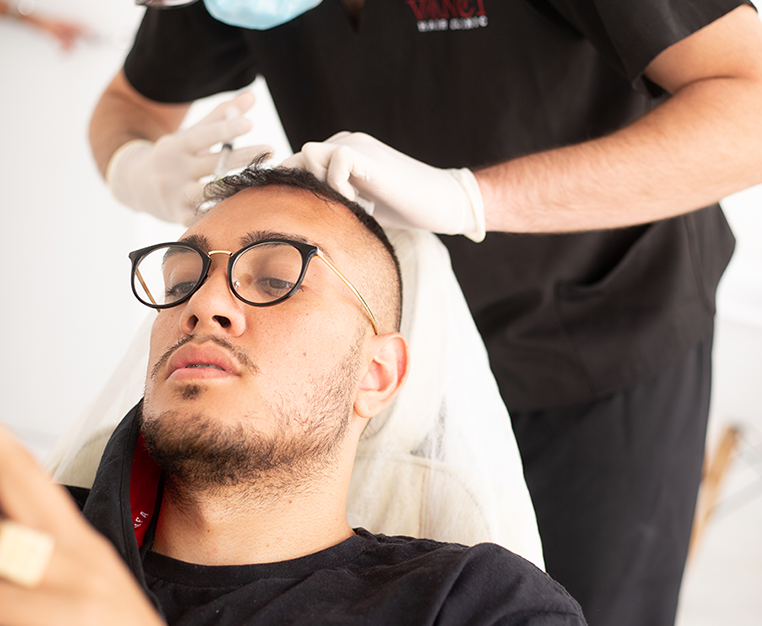You’ve been washing and soaking your hair your whole life so you must be an expert, right? You apply shampoo and conditioner to your hair, bubble it up and wash it off. You finish it with a firm pat dry and get back to living your life. Easy peasy lemon squeezy.
Hair experts are well aware of the average person’s hair-washing routine, and it drives them crazy. They know that so many hair problems stem from how people wash and rinse their hair. Washing your hair doesn’t have to be complicated. There’s a way to properly clean your hair that can help you prevent scalp aggravation and bad hair days. Continue reading to learn about co-washing.
What Does Co-washing Mean?
Cleansing your hair with conditioner is known as co-washing or conditioner-only washing. It’s particularly good for those with curly or dry hair. It’s crucial to understand, however, that co-washing involves more than simply avoiding shampoo and using conditioner.
What’s The Difference Between Shampoo And Co-Washing?
Sulphates are surfactants found in many shampoos that thoroughly clean your hair. The downside, however, is that they are likely to deplete your hair’s natural oils and hydration at the same time. Your hair will become drier and more vulnerable to damage as a result.
Switching to a co-washing routine could mean that your hair becomes more robust. Maintaining its natural hydration helps it to grow thicker and healthier. Co-washing sounds good, therefore, but you still need to know how to do it properly.
Five Common Co-washing Mistakes
Co-washing is a simple technique, but you need to steer clear of some of the most common mistakes people make when they switch to using it. The following are a few of them.
Washing Your Hair Daily
You wash your face daily, so shouldn’t you do the same with your hair? Not necessarily. Increasing hair washing frequency means you are rinsing away its essential protective oils. Your scalp then gets the signal to produce more oil, meaning that your hair ends up becoming oily more quickly.
The important point is to wash your hair only when it’s necessary, not just because you feel you should. If you exercise a lot, you’ll have to clean your hair more frequently but try using dry hair products on days when your hair is very oily.
Applying Different Kinds Of Hair Products
Sticking to one product is healthier for your hair. Ignore the people who tell you that hair adapts to products over time so that they lose their effectiveness. That’s just not the case. If you find that there are changes to the condition of your hair, it is more likely due to something as simple as your hair texture responding to fluctuating temperatures.
Not Using Conditioner
Conditioner has a bad reputation, as many people believe it drags down hair and makes it look flat and dull. This might be because it’s often used incorrectly. Conditioner is designed to work on your hair but not on the scalp. Rather than simply dumping it on your head, you must apply it on the ends of your hair and work your way up to the centre. This will keep your tresses supple and moist at the ends, for while your scalp restores its essential oils after shampooing, the oils typically end there, leaving your tips dry. Conditioner helps correct this.
Using A Silicone-Enriched Shampoo
Silicone-based shampoos quickly leave your hair looking smooth and soft. Sadly, they also cause damage to your hair and dry it out gradually. They can clog hair follicles, thus preventing new hair growth. Less harm is caused by applying silicone-enriched hair products, just as long as there’s no silicone in your shampoo. The golden rule is that shampoo has only one purpose: to wash hair.
Using Hot Water For Washing
Hot water feels great on your body, but it’s terrible for your scalp and hair. It not only damages your tresses but also exposes the cuticle of your hair, allowing natural moisturisers to leave. Consequently, the hair loses its elasticity, and the colour disappears.
Hair is also prone to curl when the cuticles start to open. So, after you wash your hair, reduce the temperature of the water to moderate or cool to seal in hydration for a silky, frizz-free style.
Conclusion
Co-washing can have a significant impact on your hair. Using co-washing products instead of shampoo could be the key to having smoother, thicker hair. Just keep in mind that every user will react differently to various hair products. Also, shifting to a co-washing routine doesn’t imply you need to or should stop shampooing your hair.
Finding a little more hair in the shower or struggling with hair loss? Vinci Hair Clinic is here to help. We offer a free consultation to all our new clients. Get in touch and book your appointment today!



